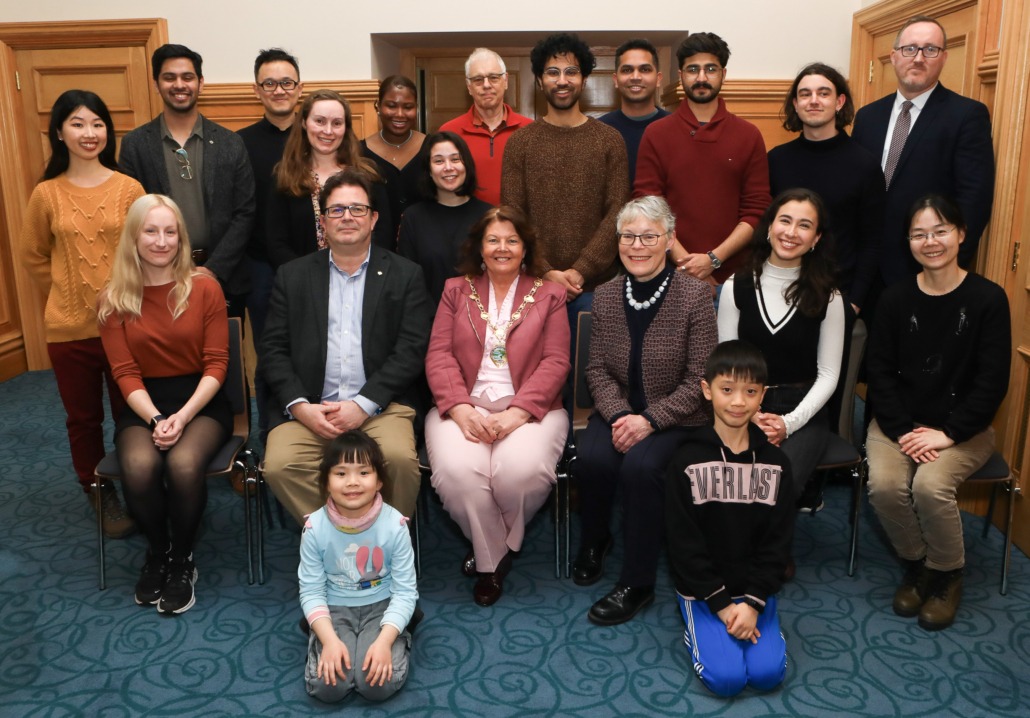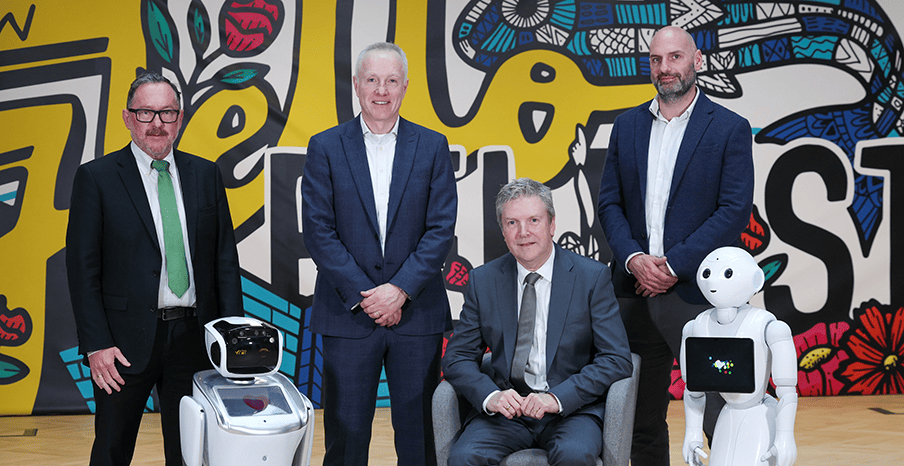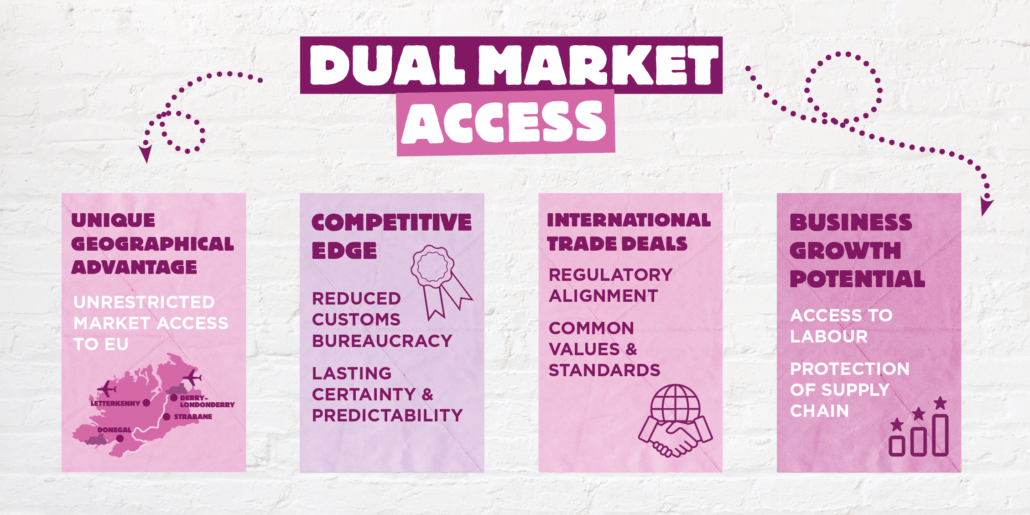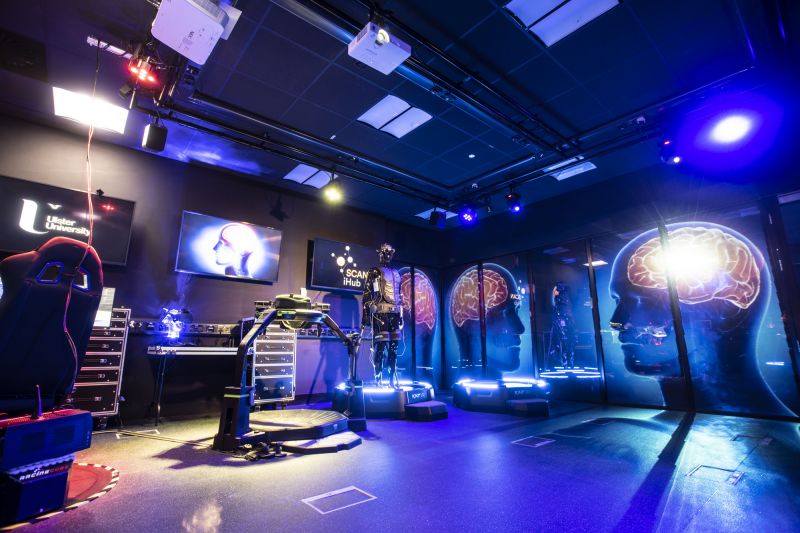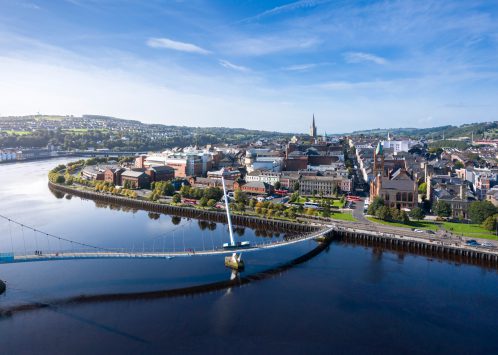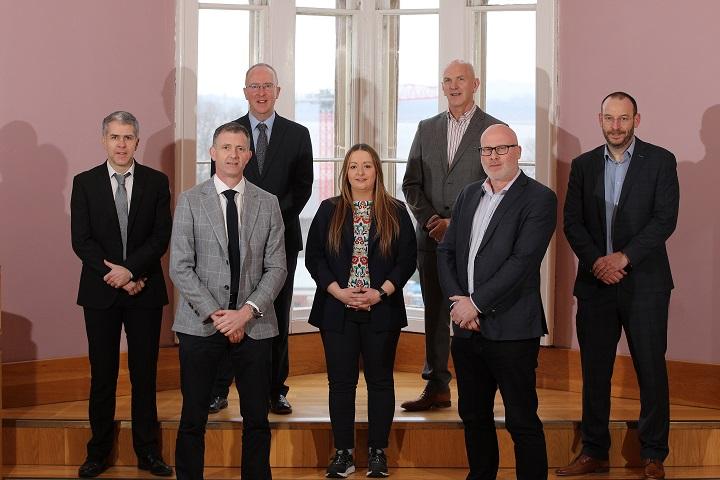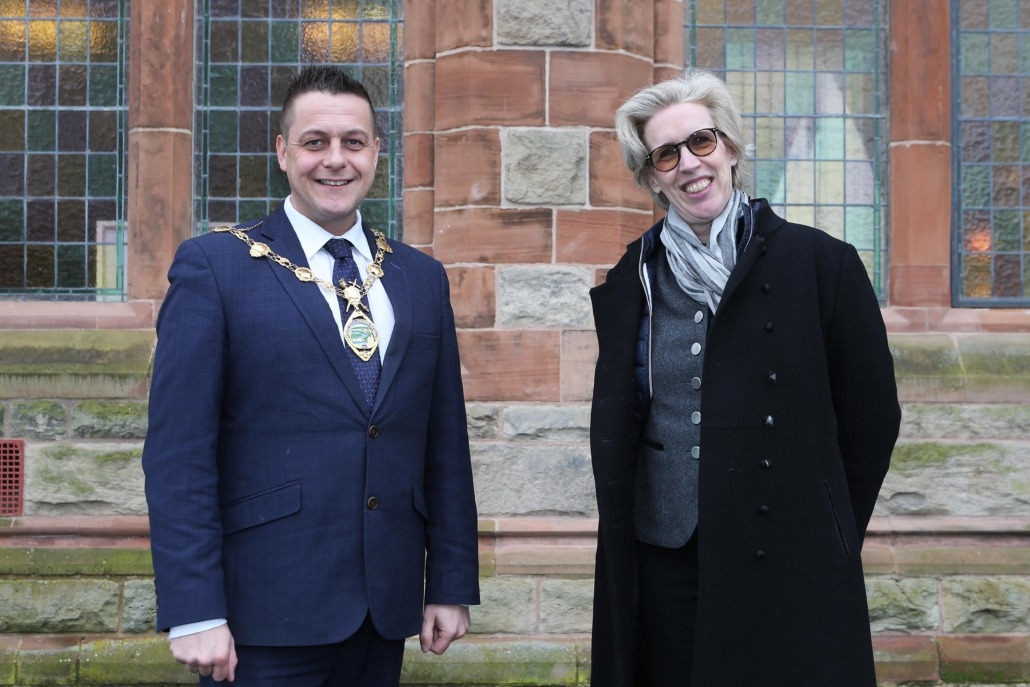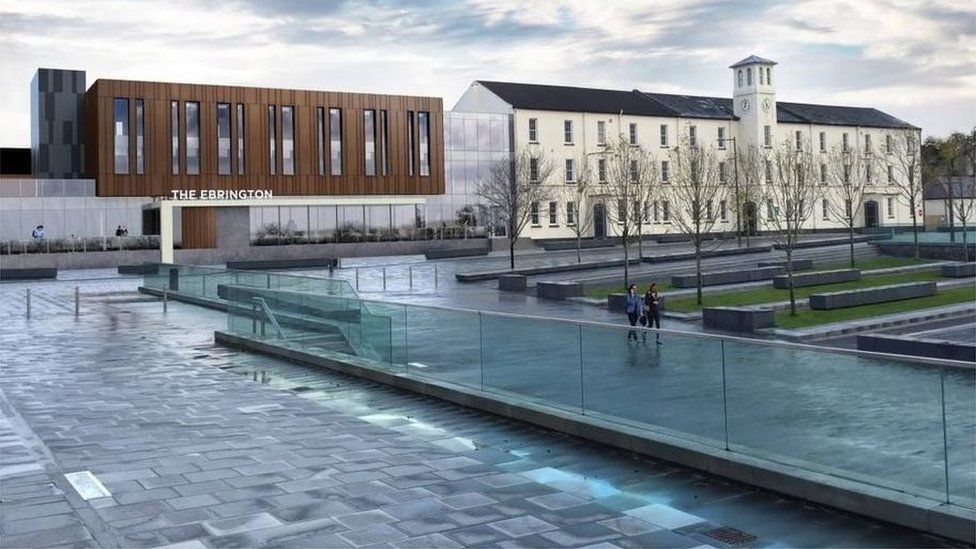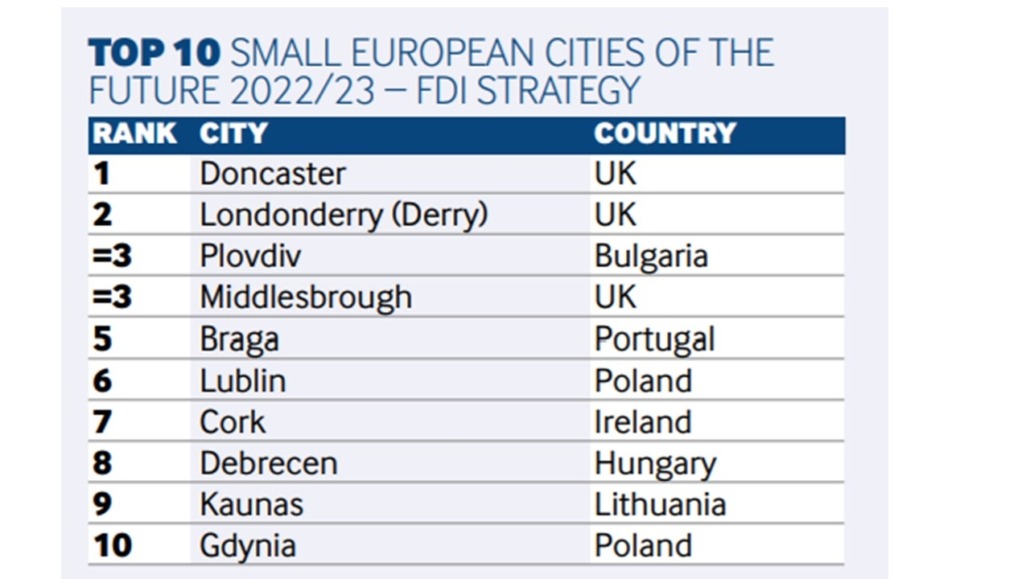The Derry-Londonderry and Strabane City Region City Deal has celebrated a major milestone with the signing of a Financial Deal to unlock more than £290 million of investment in health, life science and digital projects and bring transformational change to the region.
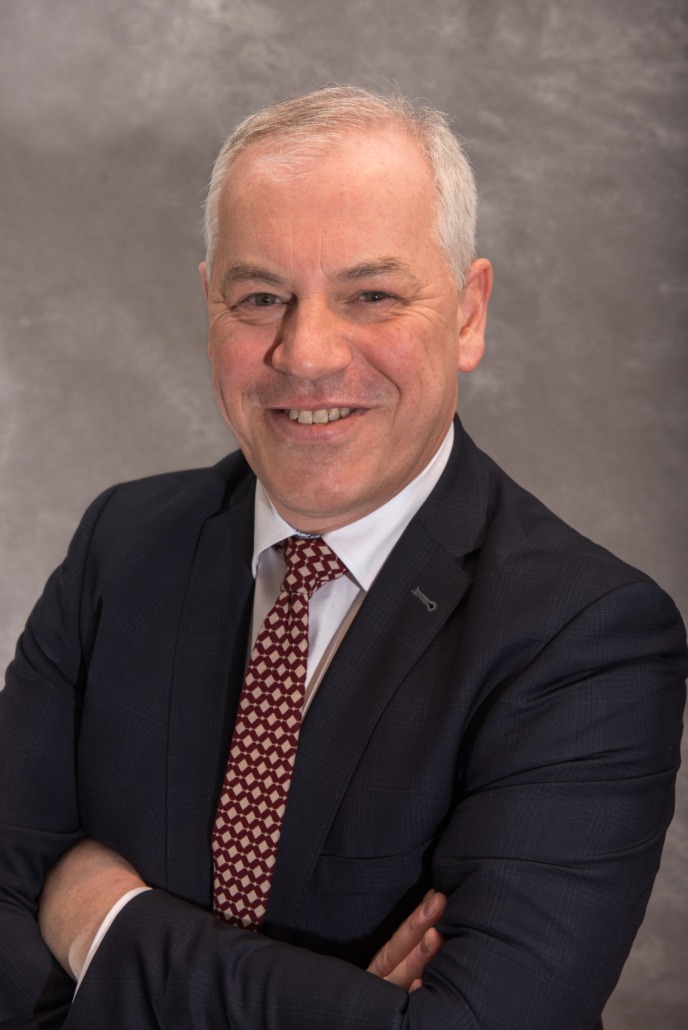
Derry City and Strabane District Council Chief Executive John Kelpie explains the key benefits of the City Deal, and what it could mean to people hoping to return to the North West.
Congratulations on the signing of the Financial Deal. How will the City Deal change people’s day-to-day lives in the Derry City and Strabane region?
The Derry City and Strabane City Deal will improve people’s quality of life by creating more job opportunities, a safer, more vibrant city and town centre, and a focus on education and skills. It has the potential to bring up to 6,300 jobs by 2033 and lever additional millions in investment over the next decade. We aim to increase our output growth with a GVA (gross value added) of £230m per annum, which should see a significant rise in wages. People can expect to see real growth in sectors such as health and life sciences, digital industries and SMART technology that will support economic investment and regeneration, and also boost tourism and culture.
As someone who has been working on the City Deal since its inception, what aspect of the deal are you most proud of?
This is a once in a generation deal; its impact will be felt by the people of the city and district for many years to come. Personally, I’m proud of the collaboration between all the key partners who worked tirelessly to get it across the line. It’s been a joined-up approach which has seen us harness collective resources, expertise and passion for the North West. The investment from the UK government and NI Executive, plus the input from all the delivery partners, allows us to leverage additional private sector investment and make a real, positive difference to local people’s lives.
What type of jobs will be created?
We anticipate jobs will be created across all City Deal projects – including Smart Cities and digital enabling infrastructure, the School of Medicine and C-TRIC expansion, Strabane town centre’s regeneration, the Derry riverfront regeneration, Walled City tourism and the DNA (Derry North Atlantic) Museum in Ebrington.
Sustainability, inclusivity and employability are crucial and partners are already working to create a skills pipeline for the employment opportunities created by the City Deal – helping people upskill, reskill and boost digital skills.
The investment will also boost confidence and stimulate additional private sector activity and jobs. We anticipate an overall increase of 12% in the labour market, with large increases in areas such as healthcare and tourism.
What benefits will the City Deal bring for potential investors?
The North West is already an attractive proposition for investors, thanks to our unique cross-border location, our talented, well-educated workforce, and our fantastic quality of life. The City Deal, with its emphasis on innovation, digital infrastructure and regeneration will transform our local economy, and make the city and district an even greater place to do business.
What are the next steps for the City Deal?
The official signing of the Financial Deal means Council and its delivery partners can now access funding to progress to the next stage of delivering the projects, once the full business cases are approved. The next phase of the City Deal will focus on detailed design and delivery. This work will include a wider awareness and engagement process, as the designs are developed.
What message would you have for anyone looking to return or relocate to the North West?
If you grew up here, or are considering a move here, you’ll already know that there’s nowhere quite like the North West. Our location, the friendliness of our people and our rich cultural heritage are second to none. There’s an energy and excitement here, and economic growth in recent years means we are already seeing diaspora return to live, work and raise their families. The City Deal will supercharge that prosperity, innovation and regeneration. There’s never been a better time to come home. I would encourage anyone considering relocation to visit investderrystrabane.com and sign up to the Derry Strabane Global newsletter for job and investment updates, and help planning their move.
When will City Deal projects be visible on the ground?
The pledge by the UK and NI Governments with the signing of the Financial Deal allows us to progress to the delivery phase of the projects, which will be on a phased approach over the next 10 years. The first visible project will be the DNA Museum being on site by early 2025 and the Museum opening in late 2026. All of the projects are at different stages of delivery, and these will be implemented in phases. With the financial deal in place, we will now be moving at pace to bring the other projects such as the Strabane Strategic Leisure project, a key element of the Strabane Regeneration, to the next stage of delivery. There will also be a focus on creating designs and drawings ahead of engagement with the public and partners.
What legacy do you hope the City Deal will leave for future generations?
With its focus on sustainable growth and lasting change, the positive impacts of the City Deal will be felt for generations to come – from health and wellbeing, to job prospects and economic prosperity. It’s about fulfilling Derry City and Strabane’s potential as a thriving, prosperous and inclusive region for all its inhabitants.
Where can the public find out more and be kept informed about progress?
People can visit www.derrystrabane.com/citydeal and keep an eye on Derry City and Strabane District Council’s social media channel for updates.

